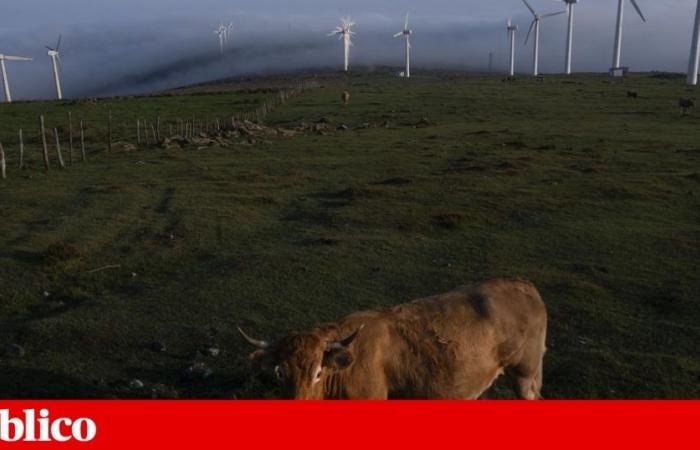The amount of renewable energy available this Monday caused the price of electricity traded on the Iberian wholesale market to fall to zero in the period between 9am and 5pm, with negative prices even being recorded on the Spanish side.
According to the website of the Iberian market operator (OMIE), the average market price for today is 2.77 euros per megawatt-hour MWh (2.76 euros in Spain), with a variation between zero and 21, 43 euros (and a minimum of -0.01 euros per MWh on the Spanish side).
Data from REN, which has global management of the electrical system, indicate that, up to 1 pm, renewable production represented 97% of electrical production (91 gigawatt-hours), with reduced use of gas-fired power plants expected (7 % of consumption), which make electricity more expensive. The import balance is negative at 4 gigawatt-hours (GWh).
The evolution is in line with what has been happening since the beginning of the year. “Until this day, renewable production represented 89% of national electricity consumption”, says REN.
This Monday, a total electricity consumption of 135 GWh is expected (more than half, or 64 GWh provided by wind farms), with a peak of 7388 MW to be reached at 8pm. This is also, according to OMIE information, the hourly period in which electricity will reach the highest value, of 21.43 per MWh.
As for Tuesday, the values are somewhat different, although there will continue to be time slots in which prices are at zero, and the average value will be 6.54 euros/MWh (9.85 euros MWh in the case of Spain) , with a maximum of 33.42 euros/MWh between 9pm and 10pm.
In the case of wholesale prices, these values have no direct influence on what most families pay at the end of the month, except those who have contracted market-indexed tariffs, which reflect these fluctuations.
Even so, it must be taken into account that the cost of energy is only one of the components of the final price. Network costs and the high burden of fees and taxes must be added to the bill.
The fact that renewable prices are approaching zero was one of the reasons that led European legislators to try to promote, with the new electricity market legislation, the widespread adoption by Member States of so-called contracts for differences, in order to attract investment for the sector.
The logic is that, by setting a reference value for electricity, the electrical system (consumers) compensates producers when the market price falls below that level, reducing the risk of an investment that needs revenue predictability to obtain financing. .
In the Portuguese case, around 40% of electricity consumption is still supplied through contracts with wind producers with guaranteed tariffs.
According to REN, the production of renewable energy supplied 91% of electricity consumption during the month of March. “It is the third consecutive month with values above 80%, after 88% in February and 81% in January”. In 2023, renewable energies recorded the highest weight ever in electrical consumption: they were responsible for 61% of consumption, for a total of 31.2 terawatt hours (TWh). Since the beginning of the year, hydro and wind productivity indices have registered values above the historical average.
As a result, the natural gas market saw a year-on-year decline of 5.8% in March, which was due to the decline in the use of this energy in electrical production, with “a year-on-year drop of 24%”.
At the end of the first quarter, annual accumulated gas consumption registered a year-on-year decline of 10%, representing the lowest consumption since 2014.
Tags: Renewables push electricity prices Iberian market Energy
--





